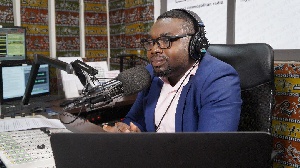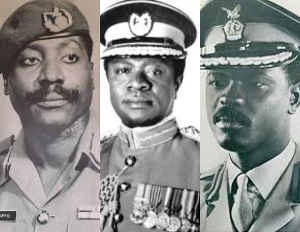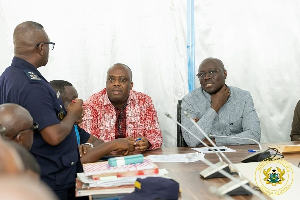In November 2017, when delivering a speech at the Bloomberg Africa Business Media Innovators Summit, held at the Kempinski Hotel in Accra President Nana Addo Dankwa Akufo- Addo stated that African Journalists have a duty to help change the image about Africa and establish a narrative which is more positive.
He further said African media practitioners have faced many challenges ranging from a highly polarised media environment, lack of technological support, limited investment in the sector, poorly paid journalists, threats to their lives, corruption, and lack of requisite training.
So all of the above media afflictions are embedded within the Ghana media industry as an institution. This is so because, Ghana is part of Africa as a continent too, so look no further.
How can a nation thrive at full throttle if the freedom of its fourth estate is being stifled and strangled by some of her Politicians?
Have you seen, read, heard or cared about the way and manner some of our radio presenters, journalists and other media personnel are being treated?
These professionals go through a lot of hustle in their various work places daily, monthly and yearly just to collect, collate and report news to you.
At least they deserve some sort of dignity and respect from their employers even if they are scantily paid, remunerated and even to some extent working for nothing.
Prince Minkah, arguably do not roll, move, work or change from one radio station to the other due to his inability to hold on to whatever role he is given at a particular radio station, but moves if there are unprofessional barriers impeding his workflow.
His radio movements have taken dotted turns and directions not because of his selfish gains or personal navigations, but rather the nature of the broadcasting terrains he finds himself.
One will then be tempted to think, Prince Minkah is the one not to mess around with, given his status in the Ghanaian media industry with respect to his pedigree and experience.
Enumerating what he thinks are the various factors undermining the progress of the Ghanaian media terrain in terms of quality he said: “ Some of the factors undermining the progress of the Ghanaian media industry includes Politicians owning the media space and not allowing professionals to manage the talents they (Politicians) employ.
“Because of their inexperience, they (Politicians) tend to force their ignorance on the flow of production and in some worse cases, forcing their political agenda”.
Another problem engulfing the stability and progress of the Ghanaian media industry is the fact that there are more potential radio or media employees than the availability of radio or media jobs.
In his explanation, he narrates: “Because of the scarcity of jobs, some professional journalist or presenters and producers tend to settle for some of these jobs with unrealistic conditions and when they can’t take it anymore they resign.
“And also some presenters are not lucky to be employed by people who understand what it takes to manage and even enhance their brands as a media institution”.
In finding a long-lasting solution to these problems or challenges as done in Europe Prince said: “ It will be important, the media or on-air talents start employing the services of agents who can bargain for them or manage their talents”.
Drawing a closure to his story, he said: “Finally most media houses lack human resource practitioners who understand the strategies in media and how it works”.
As the fourth estate and pillar of democracy, should Ghana media industry be left on the total disposal and shoulders of the present day Politician?
Opinions of Friday, 12 January 2018
Columnist: Wilfred Clarke















